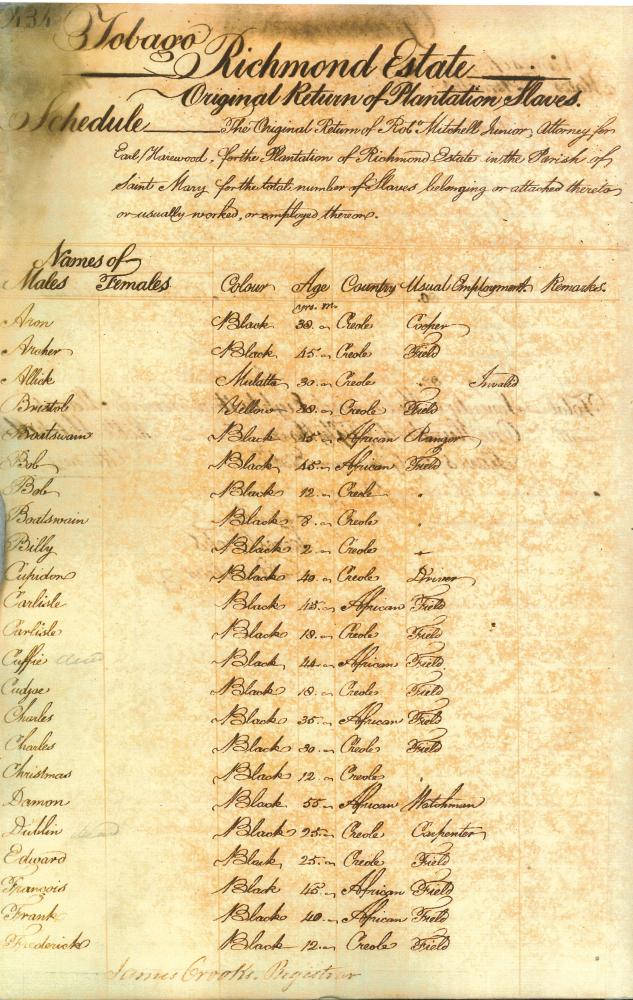Three original Tobago slave registers are on exhibition for public viewing at the Tobago Library until 11 August 2016. The registers list enslaved Africans who worked on plantations across Tobago from 1819 and are thus a valuable source for researching family history. Two copies of the registers are also available for perusal as well as access to the digital versions of the slave registers at www.ancestry.co.uk
The exhibition is being hosted by the Tobago Library Services in collaboration with the National Archives of Trinidad and Tobago and the National Memory of the World Committee (Trinidad and Tobago).

With the abolition of the Slave Trade in 1807, many of the British colonies were required to keep registers of the “lawfully enslaved” in an effort to combat the illicit trade. In 1819 the Office for the Registry of Colonial Slaves was established in London and copies of the slave registers kept by the colonies were sent to this office. The registers listed the plantation names, owners, and names of the enslaved, their ages, gender, occupation and origin.
The Tobago registers are among the slave registers of the British Caribbean that are listed on UNESCO’s Memory of the World International Register, as documentary heritage of world significance.



